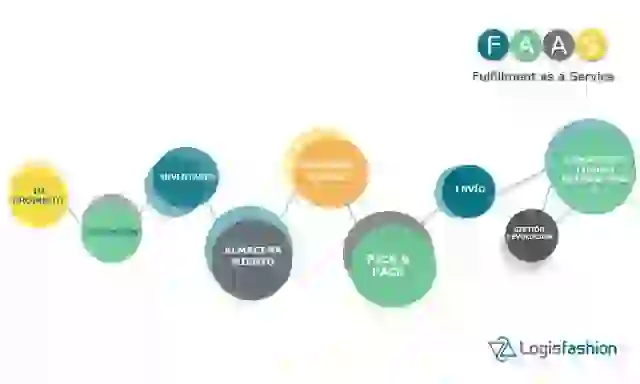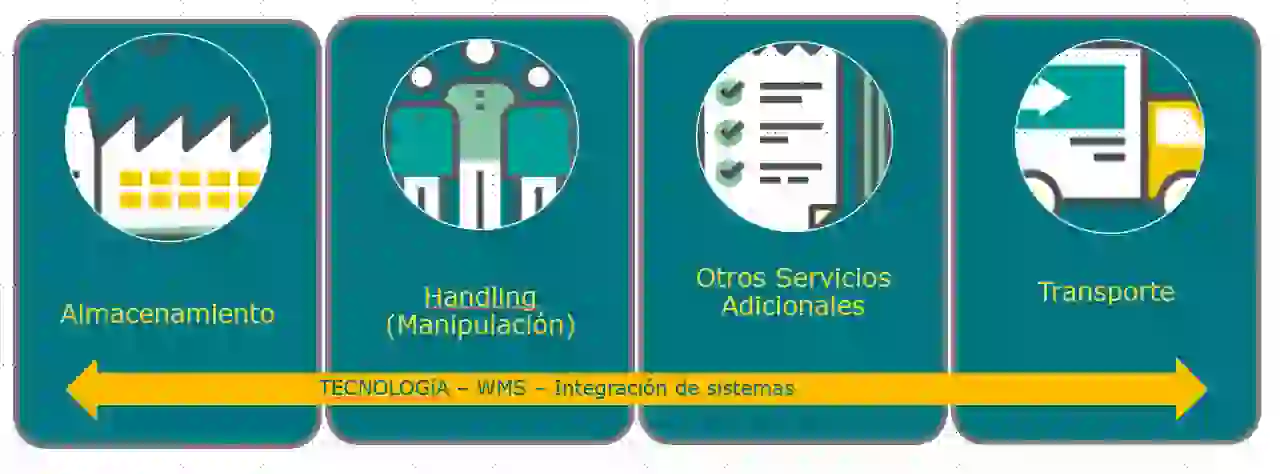The steady rise of e-commerce has caused companies that sell through e-commerce, whether in fashion, accessories, home, perfumery, etc., to take fulfilment more into account than ever before. The efficiency and level of this
service will depend on the good running of the organisation’s activity and, above all else, the shopping experience of the consumers.
From the moment the customer makes a click, the “hidden” cycle of the sales process begins. And this is where fulfilment and logistics come into play. Managing this whole process requires complex preparation and a lot of flexibility, because online sales fluctuate a lot.

That’s why many of the world’s most successful brands have a logistics and fulfilment provider to outsource this service, as it helps them effectively and quickly complete the entire sales process, from stock management, storage, handling and order preparation, to any other value-added operation and distribution to the end customer, where in addition to meeting the agreed-upon deadlines for the shipment of orders, reverse logistics (returns and recovery of items into the sales cycle) must be managed.
What is logistical fulfilment?
It’s not just the management of the merchandise, it’s much more. It is adapting our business to new demand models, with the focus on the consumer and taking into account:
- The shopping experience: it is holistic. That is to say, it is not only about the website and usability, but also the whole process, considering that there are many links that make it up and none can fail (order preparation, delivery, return policy, payment methods, etc.).
- The quality of the product: the product must arrive in perfect condition and the brands increasingly focus on the customisation of the order (card, gift bag, packaging, etc.).
- The condition of the shipment: well-kept packaging that adequately protects the product is essential.
- Delivery time: this is one of the most critical points of fulfilment, as it must be as expected by the consumer. Delivery times are getting shorter and shorter and tracking information is a priority, i.e. the visibility of the order status and its different stages until it reaches homes.
The fulfilment applies to the different omnichannel logistics operations (b2b, b2c), although it is more associated with the e-commerce service because of the complexity required by this market.

Technology, essential for fulfilment
Fulfilment is a personalised service for brands looking for efficient and flexible logistics, therefore technology plays an essential role here. In this sense, it must include the different platforms involved in the process, the e-commerce website and the different technological systems: Order Management System (OMS), Warehouse Management System (WMS) y Transport Management System. Here again the visibility of stocks and the traceability of the entire process are a necessity.
Advantages of outsourcing fulfilment
Without a doubt, there are many benefits of outsourcing fulfilment, as it implies
- Improving stock control (more refined inventories).
- Better control of operational KPIs.
- Managing staff to adapt to sale oscillations, so that it can successfully face campaigns such as Black Friday or Christmas.
- Providing greater visibility and traceability of the entire process.
- Consultancy for international sale.
- Avoiding fixed costs and large investments in structure.
- It is fully scalable and adapts to the needs and conditions of the clients.
- Streamlining the operation so that the business can grow while always maintaining quality.
The challenge of brands in these difficult times is to achieve empathy with their customers, understand what they need and be agile enough to meet their wants and needs.

